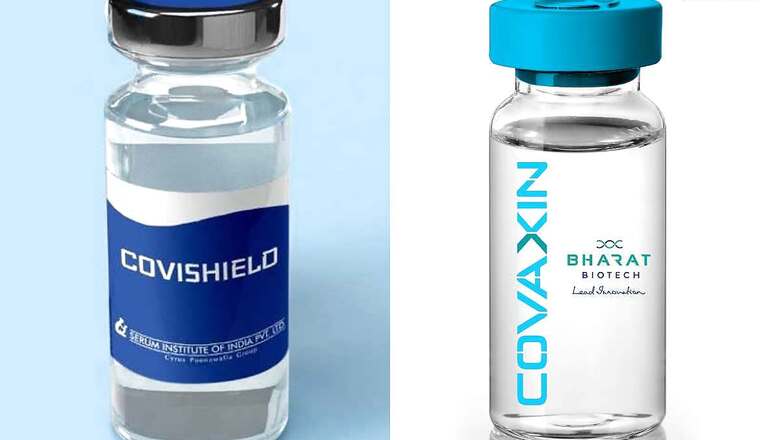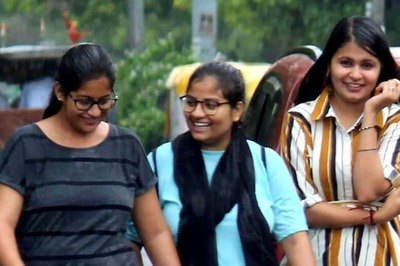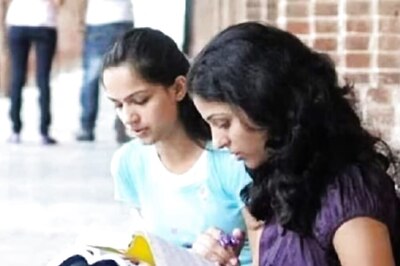
views
Indian states are more than capable of directly procuring COVID-19 vaccines from manufacturers. This is not something new and states have been doing it for decades. Do remember that every state government has its own agency—sometimes they have a corporation and sometimes they entrust the work to an in-house procurement agency—which buys the drugs, consumables etc. for a slew of government health programmes.
And, in case there is any problem, there are enough professional procurement agencies available that can work for the states on a percentage commission. Smaller states can even club procurement of vaccines with bigger states if they come together—the overhead costs will come down and it will be economical.
Further, UNICEF has been shouldering the responsibility of procuring vaccines indented from abroad for the universal immunization programme (UIP). There are other UN agencies as well, including the World Bank, which can provide technical support if needed. Here, the specifications are known in advance and only vaccines cleared by approved regulators will be allowed, so the usual tussles over technical bids may not be there.
In any case, Indian states are competent to undertake the procurement of vaccines. Where they go wrong is the obsession with the lowest tenderer which compromises on quality and even leads to corruption. This time, the usual delays caused by negotiations at various levels will not take place because of the sheer urgency to act quickly. Negotiating a better price or supply schedule which happens usually must not be allowed to hold up the procurement process for COVID vaccines.
Getting the Logistics Right
What is important is to decide the cohorts of population that need to be covered on priority. Also, the criteria for providing free vaccines and charging the public which can pay has to be a state decision based on that state’s perception of willingness to pay and the cost of additional logistics required. If the Centre had notified the upper cost it would have forestalled unhealthy cornering of vaccines by states with greater paying capacity. It is not clear whether they would get the benefit of the price at which central procurement had been fixed.
In any case (as some TV channels have been suggesting), the possibility of people buying the vaccine over-the-counter is neither feasible nor should it be even considered. Getting vaccinated is not as simple as it appears because there are cases which show side-effects; this requires everyone to be monitored during administration of the vaccine. The process also requires a back-up medical cover—essentially doctors who can act if something goes wrong, which cannot be anticipated. Even one case with severe side effects, if not treated promptly, can lead to patient distress and affect people’s response to the whole vaccine programme negatively.
We have hundreds of high-quality laboratories and diagnostic centres and clinics that are registered with the state governments. Each of them, subject to the quality of back-up they possess, can be given the authority to administer COVID-19 vaccines. It doesn’t necessarily have to be a hospital. We just need the services of qualified doctors and even qualified private practitioners can be registered for providing this back-up.
The process of administration of vaccines must be decentralized, no state can only depend on its public facilities.
Even last April, comparatively outlier states like Jharkhand, Odisha and Chhattisgarh as well as the state health departments in bigger states had been efficient in issuing and implementing guidelines on quarantine, isolating suspected cases and monitoring those recovering at home etc. If the states could achieve this at such short notice, they can certainly procure and manage COVID vaccines for their residents. Only it has to be done on emergency track and not by blaming someone or the other.
A major challenge could be the need to ensure there is no mix-up of vaccines. Computerized management with oversight is needed to ensure that a person gets the second dose of the same vaccine. Vaccines—Covaxin, Covishield and now Sputnik—can be assigned centre-wise to avoid a mix-up. This is elementary but is being mentioned because there will be a high demand at places and comparatively subdued interest elsewhere depending on how effective the public awareness campaigns are.
The Price Factor
On prices, states would have to issue a directive on who is eligible for a subsidy. Clearly, certain groups like the BPL (Below Poverty Line) families who are getting subsidized ration would need to be given free vaccines. These groups can be administered vaccines at any state health centre as their details by family and house numbers are readily available with the public distribution systems.
In rural areas, sub-centers manage a population of 5,000—sub-centres are sometimes called wellness centres too—and if they have a doctor who visits for even half-a-day by rotation, people can be vaccinated there. The sub-centres are within walking distance of the satellite population. It can certainly be done at the Primary Health Centre (PHC) level and was being done in some states already, using the central supplies. PHCs cater to a population of 30,000 and all states know the location of their sub-centres, PHCs, Community Health Centres, which are administered by the Chief Medical Officer of each district. In addition, the District Magistrates have ready access to data on village-wise habitations. Vaccine administration even in rural areas is not such a difficult job, but because the ongoing UIP programmes for childhood diseases must continue, there will be a need to augment manpower if the vaccination programmes are to run on fast track, side by side.
What, however, would require discussion is who is going to pay for the bulk vaccine procurement. Whether the states would first procure the vaccines or would ask other players to manage their procurement subject to a cap on prices is unclear.
Once the private sector starts administering the foreign vaccines, they will charge the beneficiaries as per market forces. People may not mind paying Rs 1,000 a dose, I feel. That way, you can certainly get the money back into the system.
My only concern is we have lost nearly six weeks since the surge was experienced at so many places. By this period, had all the glitches vis-à-vis vaccine management been ironed out, the roll-out could indeed have been massive which is what the situation demands. States will now have to do this in a great hurry—we hope they do it efficiently and effectively.
Read all the Latest News, Breaking News and Coronavirus News here. Follow us on Facebook, Twitter and Telegram.




















Comments
0 comment